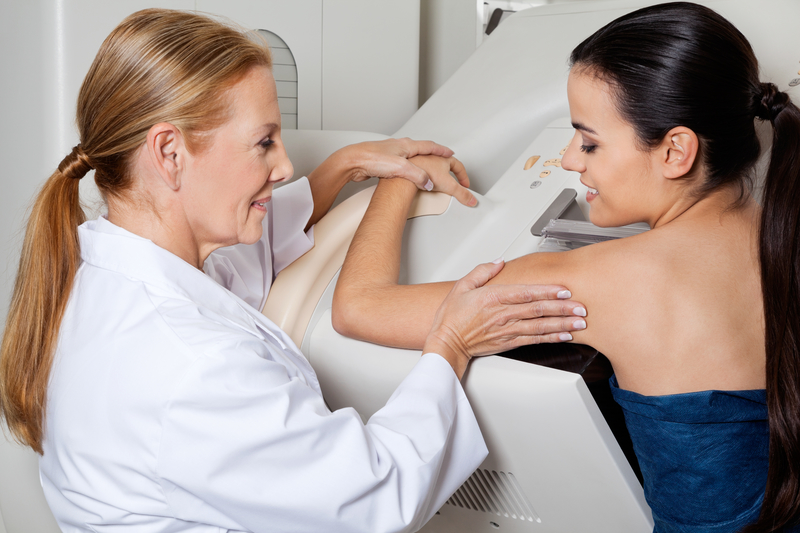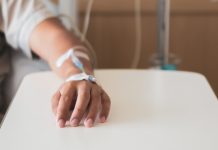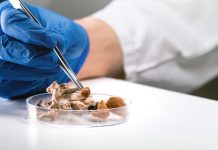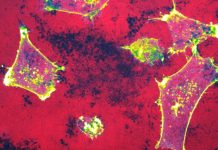Rachel Clark, Health Promotion Manager, at World Cancer Research Fund, sheds light on breast cancer and how to reduce the risks of developing the disease.
Breast cancer is the most common cancer in women in the UK. In fact, 1 in 8 women will develop the disease at some stage in their lifetime. Breast cancer is rare in men, with around 400 new cases diagnosed each year in the UK, compared to around 50,000 new cases in women.
Is breast cancer preventable?
Evidence from World Cancer Research Fund estimates that about 40% of breast cancer cases in the UK could be prevented by maintaining a healthy weight, being physically active and not drinking alcohol. That’s about 20,000 fewer cancer cases a year.
Many people think that breast cancer risk is down to genes. However, only 3% of breast cancer cases are hereditary, and many of the factors that increase the chances of developing the disease are linked to lifestyle. As with all cancers, the risk of developing breast cancer depends on a number of factors and varies from person to person.
Lifestyle risk factors:
• Drinking alcohol;
• Being overweight or obese (increases the risk in postmenopausal women);
• Lack of physical activity (increases the risk in postmenopausal women).
World Cancer Research Fund also found convincing evidence that not breastfeeding increases the mother’s risk of breast cancer.
Other risk factors:
Age – risk increases with age;
• Starting periods at a younger age (before age 12);
• Late menopause (over age 55);
• Not having children, or having a late first pregnancy (over the age of 30);
• Family history – particularly if a close relative is diagnosed before the age of 50;
• Naturally occurring oestrogen and progesterone can influence the development and growth of some breast cancers. Some medications containing artificial versions of these hormones have also been linked to an increased breast cancer risk. These include:
– Taking combined hormone replacement therapy (HRT) (the evidence is less clear for oestrogen- only HRT) – risk continues to increase slightly the longer someone takes HRT but decreases gradually once they stop;
– Taking the oral contraceptive pill (the evidence is less clear for the mini pill) – risk increases slightly when someone takes the pill, but slowly returns to normal after they stop.
How can people reduce their risk of breast cancer?
Cut down on alcohol
We have strong evidence that drinking alcohol increases breast cancer risk. It is estimated that 22% of cases could be prevented if we didn’t drink any alcohol.
Maintain a healthy weight
Being a healthy weight is one of the best things people can do to help protect against breast cancer.
Be more active
People should aim to be physically active for at least 30 minutes every day. If they can, women should breastfeed their baby. These steps are based on research from our Continuous Update Project (CUP).
What about screening?
The good news is that most breast cancer cases can be successfully treated if they are detected early – that’s why it is important for women to attend breast screening whenever they are invited. Visit NHS Choices to find out about breast cancer screening, symptoms and treatment.
If the cancer has spread, treatment becomes more difficult, and generally a person’s chances of surviving are much lower.
More than 90% of women diagnosed with breast cancer at the earliest stage survive their disease for at least five years compared to just 15% for women diagnosed with the most advanced stage of the disease.
Breast cancer survivors
There is growing evidence that eating a plant-based diet, maintaining a healthy weight and getting regular physical activity may help to prevent people from getting cancer again, and improve survival, particularly following breast cancer.
However the evidence is not yet clear enough for us to be able to make more detailed recommendations. So, until further research is done, the best advice to reduce the risk of cancer returning is to follow our Cancer Prevention Recommendations.
Future research
More and more people in the UK are living with a diagnosis of cancer, and this is likely to increase as treatments for the disease improve. Preventing a recurrence of the disease and improving general health in cancer survivors is a new focus of research and is a priority for the scientific work we fund. Health professionals based in the UK can take advantage of our FREE cancer prevention package, which includes online training and resources.
Visit the World Cancer Research Fund website to find out more about cancer prevention.
Rachel Clark
Health Promotion Manager
World Cancer Research Fund











